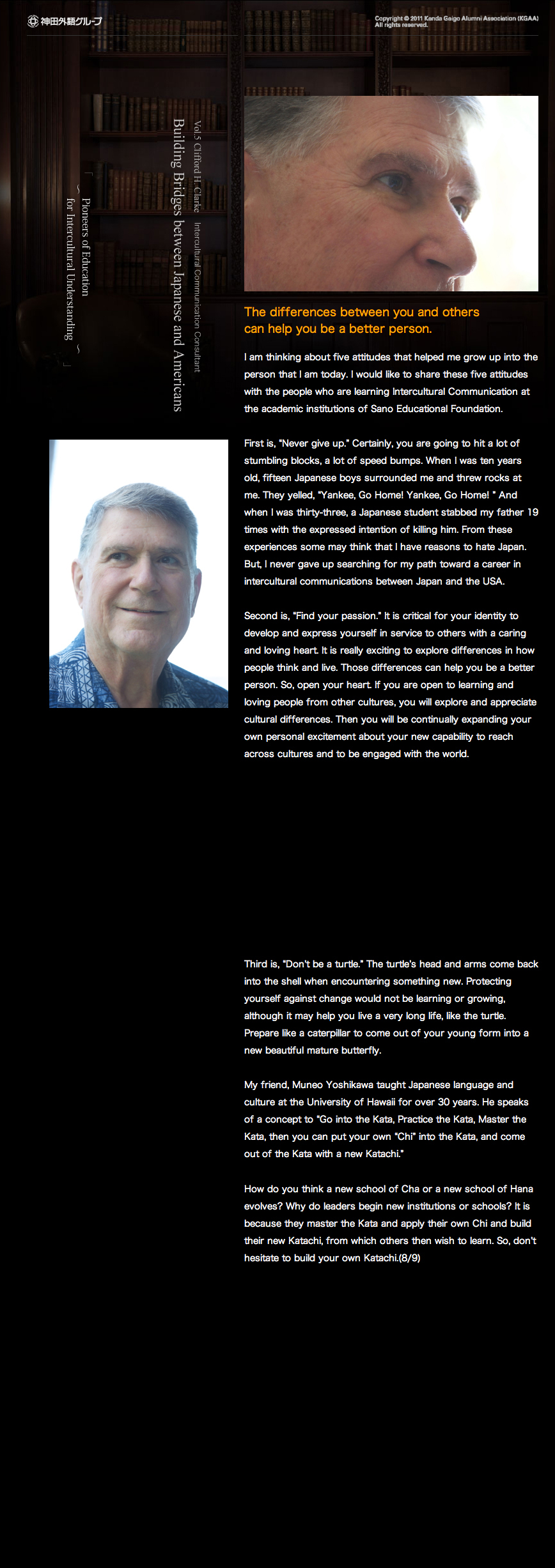

Copyright © 2011 Kanda Gaigo Alumni Association(KGAA). All rights reserved.

I am thinking about five attitudes that helped me grow up into the person that I am today. I would like to share these five attitudes with the people who are learning Intercultural Communication at the academic institutions of Sano Educational Foundation.

First is, “Never give up.” Certainly, you are going to hit a lot of stumbling blocks, a lot of speed bumps. When I was ten years old, fifteen Japanese boys surrounded me and threw rocks at me. They yelled, “Yankee, Go Home! Yankee, Go Home! ” And when I was thirty-three, a Japanese student stabbed my father 19 times with the expressed intention of killing him. From these experiences some may think that I have reasons to hate Japan. But, I never gave up searching for my path toward a career in intercultural communications between Japan and the USA.
Second is, “Find your passion.” It is critical for your identity to develop and express yourself in service to others with a caring and loving heart. It is really exciting to explore differences in how people think and live. Those differences can help you be a better person. So, open your heart. If you are open to learning and loving people from other cultures, you will explore and appreciate cultural differences. Then you will be continually expanding your own personal excitement about your new capability to reach across cultures and to be engaged with the world.
Third is, “Don’t be a turtle.” The turtle’s head and arms come back into the shell when encountering something new. Protecting yourself against change would not be learning or growing, although it may help you live a very long life, like the turtle. Prepare like a caterpillar to come out of your young form into a new beautiful mature butterfly.
My friend, Muneo Yoshikawa taught Japanese language and culture at the University of Hawaii for over 30 years. He speaks of a concept to “Go into the Kata, Practice the Kata, Master the Kata, then you can put your own “Chi” into the Kata, and come out of the Kata with a new Katachi.”
How do you think a new school of Cha or a new school of Hana evolves? Why do leaders begin new institutions or schools? It is because they master the Kata and apply their own Chi and build their new Katachi, from which others then wish to learn. So, don’t hesitate to build your own Katachi.(8/9)